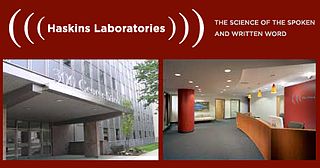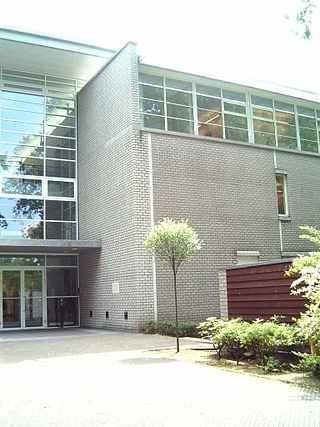
Cognitive science is the interdisciplinary, scientific study of the mind and its processes with input from linguistics, psychology, neuroscience, philosophy, computer science/artificial intelligence, and anthropology. It examines the nature, the tasks, and the functions of cognition. Cognitive scientists study intelligence and behavior, with a focus on how nervous systems represent, process, and transform information. Mental faculties of concern to cognitive scientists include language, perception, memory, attention, reasoning, and emotion; to understand these faculties, cognitive scientists borrow from fields such as linguistics, psychology, artificial intelligence, philosophy, neuroscience, and anthropology. The typical analysis of cognitive science spans many levels of organization, from learning and decision to logic and planning; from neural circuitry to modular brain organization. One of the fundamental concepts of cognitive science is that "thinking can best be understood in terms of representational structures in the mind and computational procedures that operate on those structures."
Cognitive linguistics is an interdisciplinary branch of linguistics, combining knowledge and research from cognitive science, cognitive psychology, neuropsychology and linguistics. Models and theoretical accounts of cognitive linguistics are considered as psychologically real, and research in cognitive linguistics aims to help understand cognition in general and is seen as a road into the human mind.
Robert D. Van Valin Jr. is an American linguist and the principal researcher behind the development of Role and Reference Grammar, a functional theory of grammar encompassing syntax, semantics, and discourse pragmatics. His 1997 book Syntax: structure, meaning and function is an attempt to provide a model for syntactic analysis which is just as relevant for languages like Dyirbal and Lakhota as it is for more commonly studied Indo-European languages.
The Endangered Language Fund (ELF) is a small non-profit organization based in New Haven, Connecticut. ELF supports endangered language maintenance and documentation projects that aim to preserve the world’s languages while contributing rare linguistic data to the scientific community.

Haskins Laboratories, Inc. is an independent 501(c) non-profit corporation, founded in 1935 and located in New Haven, Connecticut, since 1970. Haskins has formal affiliation agreements with both Yale University and the University of Connecticut; it remains fully independent, administratively and financially, of both Yale and UConn. Haskins is a multidisciplinary and international community of researchers that conducts basic research on spoken and written language. A guiding perspective of their research is to view speech and language as emerging from biological processes, including those of adaptation, response to stimuli, and conspecific interaction. Haskins Laboratories has a long history of technological and theoretical innovation, from creating systems of rules for speech synthesis and development of an early working prototype of a reading machine for the blind to developing the landmark concept of phonemic awareness as the critical preparation for learning to read an alphabetic writing system.
Mark Yoffe Liberman is an American linguist. He has a dual appointment at the University of Pennsylvania, as Trustee Professor of Phonetics in the Department of Linguistics, and as a professor in the Department of Computer and Information Sciences. He is the founder and director of the Linguistic Data Consortium. Liberman is the Faculty Director of Ware College House at the University of Pennsylvania.

Philip E. Rubin is an American cognitive scientist, technologist, and science administrator known for raising the visibility of behavioral and cognitive science, neuroscience, and ethical issues related to science, technology, and medicine, at a national level. His research career is noted for his theoretical contributions and pioneering technological developments, starting in the 1970s, related to speech synthesis and speech production, including articulatory synthesis and sinewave synthesis, and their use in studying complex temporal events, particularly understanding the biological bases of speech and language.
Alvin Meyer Liberman was born in St. Joseph, Missouri. Liberman was an American psychologist. His ideas set the agenda for fifty years of psychological research in speech perception.
Louis M. Goldstein is an American linguist and cognitive scientist. He was previously a professor and chair of the Department of Linguistics and a professor of psychology at Yale University and is now a professor in the Department of Linguistics at the University of Southern California. He is a senior scientist at Haskins Laboratories in New Haven, Connecticut, and a founding member of the Association for Laboratory Phonology. Notable students of Goldstein include Douglas Whalen and Elizabeth Zsiga.

The Max Planck Institute for Psycholinguistics is a research institute situated on the campus of Radboud University Nijmegen located in Nijmegen, Gelderland, the Netherlands. The institute was founded in 1980 by Pim Levelt, and is particular for being entirely dedicated to psycholinguistics, and is also one of the few institutes of the Max Planck Society to be located outside Germany. The Nijmegen-based institute currently occupies 5th position in the Ranking Web of World Research Centers among all Max Planck institutes. It currently employs about 235 people.
Ping Li is a Professor of Psychology, Linguistics, and Information Sciences and Technology at Pennsylvania State University. He specializes in language acquisition, focusing on bilingual language processing in East Asian languages and connectionist modeling. Li received a B.A. in Chinese linguistics from Peking University in 1983, an M.A. in theoretical linguistics from Peking University, a Ph.D. in psycholinguistics from Leiden University and the Max Planck Institute for Psycholinguistics in 1990, and completed post-doctoral fellowships at the Center for Research in Language at the University of California, San Diego and the McDonnell-Pew Center for Research in Cognitive Neuroscience in 1992. Li has been employed at the Chinese University of Hong Kong (1992–1996), the University of Richmond (1996–2006), and Pennsylvania State University (2008–present), and he has also served as a Visiting Associate Professor at Hong Kong University (2002–2003), an adjunct professor at the State Key Laboratory for Cognitive Neuroscience and Learning at Beijing Normal University (2000–present), as well as Program Director for the Perception, Action, and Cognition Program and the Cognitive Neuroscience Program at the National Science Foundation (2007–2009).
Daryl Baldwin is an American academic and linguist who specializes in the Myaamia language. An enrolled member of the Miami Tribe of Oklahoma, Baldwin has served as a member of the cultural resource advisory committee of the Miami Tribe.

David Poeppel is Professor of Psychology and Neural Science at New York University (NYU). From 2014 until the end of 2021, he was the Director of the Department of Neuroscience at Max Planck Institute for Empirical Aesthetics (MPIEA). In 2019, he co-founded the Center for Language, Music and Emotion (CLaME) an international joint research center, co-sponsored by the Max Planck Society and New York University. Since 2021, he is the Managing Director of the Ernst Strüngmann Institute.
Claire Louise Bowern is a linguist who works with Australian Indigenous languages. She is currently a professor of linguistics at Yale University, and has a secondary appointment in the department of anthropology at Yale.

The UCL Division of Psychology and Language Sciences is a Division within the Faculty of Brain Sciences of University College London (UCL) and is located in London, United Kingdom. The Division offers teaching and training and undertakes research in psychology and communication and allied clinical and basic science. It is the largest university psychology department in England.
The Institute on Collaborative Language Research or CoLang is a biennial training institute in language documentation for any person interested in community-based, collaborative language work. CoLang has been described as part of a modern collaborative model in community-based methodologies of language revitalization and documentation.
Helen Aristar-Dry is an American linguist who currently serves as the series editor for SpringerBriefs in Linguistics. Most notably, from 1991 to 2013 she co-directed The LINGUIST List with Anthony Aristar. She has served as principal investigator or co-Principal Investigator on over $5,000,000 worth of research grants from the National Science Foundation and the National Endowment for the Humanities. She retired as Professor of English Language and Literature from Eastern Michigan University in 2013.
Patience Louise "Pattie" Epps is an American linguistics professor and researcher at the University of Texas at Austin whose main research focus is on the Naduhup language family, which consists of four extant languages in the Amazon.
Karen Denise Emmorey is a linguist and cognitive neuroscientist known for her research on the neuroscience of sign language and what sign languages reveal about the brain and human languages more generally. Emmorey holds the position of Distinguished Professor in the School of Speech, Language, and Hearing Sciences at San Diego State University, where she directs the Laboratory for Language and Cognitive Neuroscience and the Center for Clinical and Cognitive Neuroscience.
Seana Coulson is a cognitive scientist known for her research on the neurobiology of language and studies of how meaning is constructed in human language, including experimental pragmatics, concepts, semantics, and metaphors. She is a professor in the Cognitive Science department at University of California, San Diego, where her Brain and Cognition Laboratory focuses on the cognitive neuroscience of language and reasoning.






